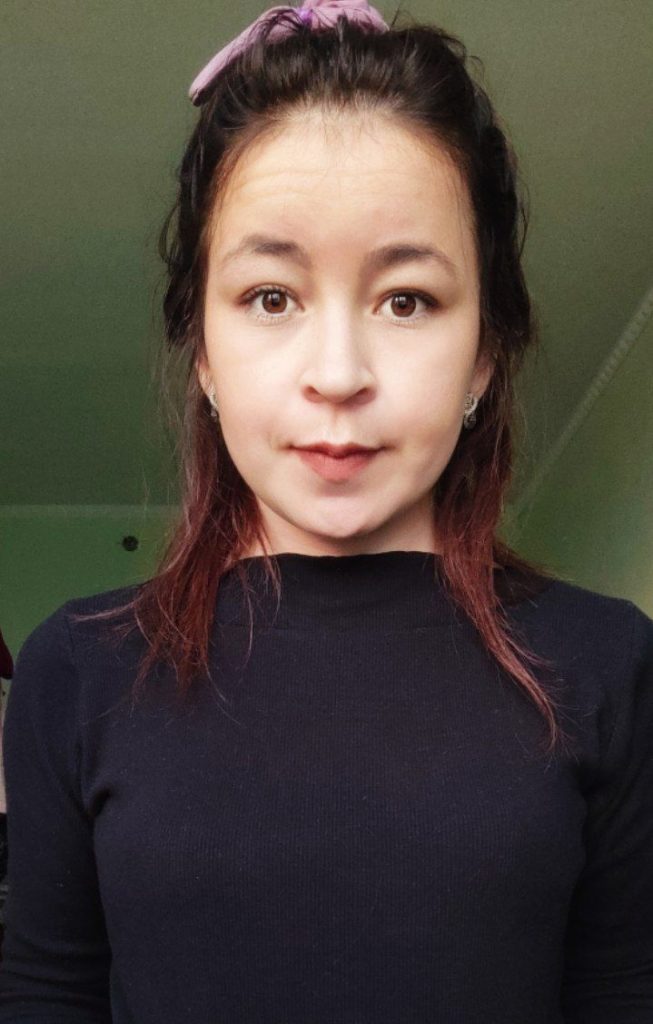
Why The Finnish Teaching Experience Should Be Chosen to Implement in Uzbekistan Zubaydullayeva S.F Teacher at English philology faculty of Karshi state university Khusenova Shosura Student of English philology faculty of Karshi state University ABSTRACT Uzbekistan has been trying to improve its own education system and has turned to Finland as the best model for reform. The Finnish approach emphasizes teacher autonomy and a strong focus on student well-being. By introducing this foreign experience, Uzbekistan hopes better academic outcomes for its students and cultivate love for learning. Introduction As of late, there has been a lot of talk about the Finnish education system, which is often thought of as being very successful. First, in the Syrdarya region on November 8 in 2022 President Shavkat Mirziyoyev claimed: "There is a problem with textbooks, so it is necessary to get into it. There were big discussions about the level of textbooks. We started making textbooks for grades 1-4 in line with the Finnish standard. Why do you say that Finland's public education is resistant to competition on a European scale and in the world as a whole, and has had a lot of experience". Later, at a meeting dedicated to developing Kashkadarya region, it was decided that 48 schools in the region will begin using the Finnish education system starting in the next school year(2023-2024).The state inspection board for education quality control has reported that this issue was discussed with a Finnish expert. Keywords finnish teaching methods, high standard textbooks,cooperation, implementation process Received:February 18,2023 Accepted:March 19,2023 Published:April 18,2023 Article Information However, is copying the Finnish education system a "magic pill" that will fix all our problems? Finland is a country with a rich history of educational reform. They have implemented a number of changes that have improved the education system there immensely. They are now ranked above the United States and are catching up to countries in Eastern Asia. Finland has been leading the way due to common- sense practices and holistic educating atmosphere which strives for equity rather than excellence. There are 11 main features in the education system of Finland which are contributing to dominate the world stage with high results and why Uzbekistan is adopting the Finnish methods of teaching. NO STANDARDIZED TESTS AND MARKS Unlike other countries, including Uzbekistan, where the majority of students learn to cram to pass tests, and teachers with the sole purpose of preparing students for passing tests only once, rather than teaching in a way that will help students in their real life, in Finland there is no standardized test. Children in this country are not expected to meet any continuous or summative assessments until they turn 16. During primary schooling, their health and mental well-being are prioritized instead of forced rote learning, memorizing and hard homework. Only one exception is the exam called the National Matriculation Exam, which is optional for those who want to take after finishing an upper-secondary school (from 7th grade to 9th grade), which reminds us our previous college system before 2017. STARTING SCHOOL AT AN OLDER AGE The Finns believe that it is better for children to have some freedom in their early years so that they can develop naturally. In fact, they start school at the age of seven, which is something that many other countries do not do. The government allows children to skip school during their childhood years if they want to. This gives kids more freedom just be kids and not have to worry about school. Children in Finland are required to attend school for nine years, but after that, it's up to them whether or not they want to continue their education. From a psychological standpoint, the idea of being "stuck in a prison" can be very frustrating. Finland believes that children should be prepared for the real world, so they don't have to live under an oppressive ideal. FINNISH CHILDREN WAKE UP LATER ON SCHOOL DAYS Waking up early, catching a bus or ride, participating in morning and after school extracurriculars can be a bit challenging for a schoolchild .Add to the fact that some classes start anywhere from 6am to 8am making them sleepy and uninspired. Students start school between 9 and 9.45 . According to researchers, Early start times can have a negative impact on students’ well-being, health, and development. The school has longer class periods and longer breaks (15 /20minutes) between them and only 3classes a day. This is so that the students can learn in a more relaxed and organized way. LESS HOMEWORK REQUIRED Finland is a country where students get a good education without having to worry about grades and busy-work. This way, they can focus on learning and growing as people. The OECD ( Organization for Economic Co-operation and development) study found that Finnish students spend the least amount of time working on homework and outside of school activities, and they are also outperforming other students around the world. This is likely because Finnish students don't have to spend as much time working on school tasks, and they have plenty of time for other activities. COOPERATION NOT COMPETITION The Finnish educational system is different from the way most Americans and other countries see it. In Finland, education is seen as a way to help people learn and grow, rather than as a competition. Although Finland doesn't use a system where schools and teachers are judged based on how well they perform, this has actually helped them become one of the most successful countries in the world when it comes to education. Schools in Finland don't focus on getting students high scores on tests or ranking them according to their individual abilities. Instead, they work together to provide an education that everyone can benefit from. GETTING EDUCATION FROM THE SAME TEACHER FOR MANY YEARS Students in Finland often have the same teacher for up to six years of their education. During those years, teachers and students build trust and a strong bond. This is because teachers know and understand the unique needs of each student. Finnish teachers take into account each student's individual progress and help them reach their goals. There is no transferring to the next teacher because there is never a 'next teacher'. ONLY TEACHERS WITH MASTER’S DEGREE Only specialists with a master's degree can work as teachers in the school. They are professions with high prestige and salary in the society, such as doctors and lawyers. NO ACCOUNTABILITY FOR TEACHERS In most countries, teachers are usually blamed when students do not succeed in school. But in Finland, teachers are held to a very high standard, so there is often no need for a system that grades teachers. HIGH QUALITY TEXTBOOKS Textbooks in school are arranged in a way that makes them roughly proportional to one another. For example, in the 6th grade, geography is taught about climate change, and biology and history also cover the topic. Climate change stages are also covered in math. The teachers can change the curriculum and teaching style to make it fit better with what they want. This makes Finnish education one of the best around, according to the United Nations. FREE ACCESS TO ANYTHING In addition to the study itself, schools offer lots of free activities such as lunch, excursions, transport and all educational tools and textbooks, and collecting money from parents for any purpose is prohibited .All educational establishments are fully funded by the government. SHOWING GREAT RESULTS IN LANGUAGE ACQUIRING Children in Finland should learn many foreign languages , and at 13 years old ,they can speak even in four languages. HOW IS THE IMPLEMENTATION PROCESS IS GOING IN UZBEKISTAN? For the implementation of the Finnish textbooks and teaching methods, 16 schools were chosen throughout the country. One of them is the 37th school , which is located in the far mountainous area of Kitab district in Kashkadarya. Despite being relatively small and the location in rural area, Several reasonable aspects such as having nearly 20 highly qualified teachers,7 first qualified teachers and other professional teachers, considerable results of previous-year school leavers in university entrance exams, and quality teaching maximized the opportunity to be selected. Large sums were allocated to renovate and provide with modern educational tools together with completely new textbooks. In November, 12 primary school teachers were trained in Tashkent with other counterparts of the Republic for 2 weeks. Nowadays, Finland teaching experience is in a place in the grades from1 to 4 of this school. Teachers claim to witness significant progress as well as changes in the enthusiasm , interest of young children. In addition to easy to understand structure of textbooks, correlation the topics with other subjects( for example teaching transport modes in mother tongue lessons, in reading classes and finally giving mathematical problems about transport in math classes on the same day , as a result achieving improving overall understanding of children on transport), letting them express their opinions on any topic and motivating them with always excellent marks instead of bad ones are contributing to prepare pupils who can think independently, critically and make independent decisions. We hope GREAT RESULTS from this offspring in the near future. REFERENCES 1. https://daryo.uz/2022/11/27/ozbekiston-oz-talim-tizimida-nega-aynan-finlyandiyausulidan-foydalanmoqchi 2. https://t.me/mtrkuzofficial/115710 3. https://www.weforum.org/agenda/2018/09/10-reasons-why-finlands-education-system-isthe-best-in-the-world 4. Watch "O'ZBEKISTON VS FINLANDIYA" on YouTube.https://youtu.be/k-ehsJHD5ZQ 5. WWW.WORLDBANK.ORG/EDUCATION/SABER 6. https://www.afterschoolafrica.com/42953/10-reasons-why-finland-has-the-besteducation-system-in-the-world/ 7. https://www.afterschoolafrica.com/42953/10-reasons-why-finland-has-the-besteducation-system-in-the-world/ 8. https://t.me/qashqadaryo_trk



